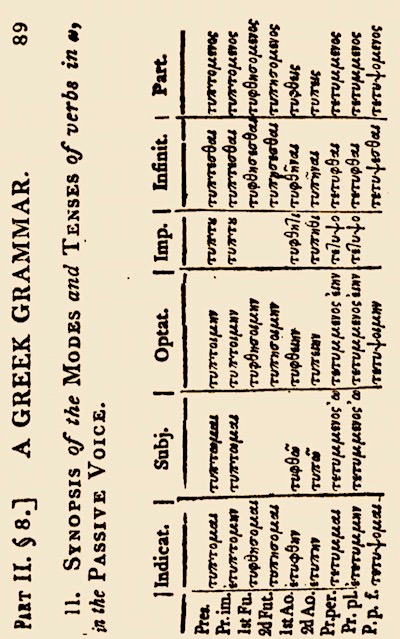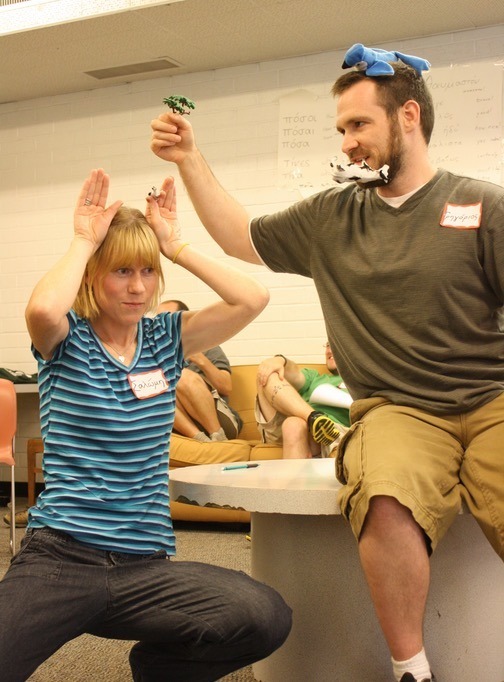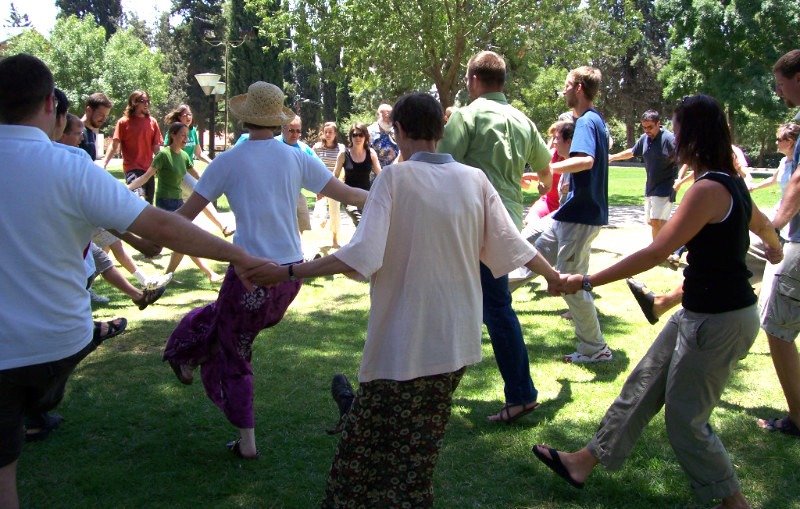A lot of people ask me what I recommend for learning Biblical Hebrew or Greek. Some are just looking for ways to enhance their personal Bible study. Others are serious students who are looking for a good program for long term study. This article is for the latter audience. I’ve got news that will affect your choice.

In the past 20 years there has been a discussion going on among scholars about the need to improve biblical language teaching. Most textbooks use a centuries-old method that focuses on analyzing verbs and memorizing tables of endings, and all the teaching is done in English. This classical “grammar translation” method used to be how all languages were taught.
Decades ago, professors realized that most students don’t learn languages well this way or keep using them later on. Modern language programs updated their methods because of research on how the brain acquires new languages. What they discovered is that people learn more quickly when they interact and communicate within a language, so that they internalize its structure by being immersed in it.
Because of this, modern language classes now commonly use Communicative Language Teaching (CLT) methods. Their students typically learn more of the language than students in classical programs and retain it longer too. Until recently, nothing like this was available for biblical languages.
There are Better Approaches
At this point, only a few university-accredited programs have applied modern methods to Biblical Hebrew and Koine Greek. One of the pioneers in the field is the Biblical Language Center. Headed by linguist and Bible translator Randall Buth, they’ve been developing courses that are being adopted by a growing number of colleges and seminaries.
 In 2001 I went to Israel to take my first class from the Biblical Language Center in Biblical Hebrew. I’ve since taken Koine Greek and other classes too. Students immerse themselves in Hebrew or Greek, interacting simply at first, then gradually building the brain’s ability to “think” in the language. People quickly gain an elementary vocabulary and start communicating in the language, at least in basic ways.
In 2001 I went to Israel to take my first class from the Biblical Language Center in Biblical Hebrew. I’ve since taken Koine Greek and other classes too. Students immerse themselves in Hebrew or Greek, interacting simply at first, then gradually building the brain’s ability to “think” in the language. People quickly gain an elementary vocabulary and start communicating in the language, at least in basic ways.
In my class we heard it spoken, told stories and acted them out. We sang songs, danced and prayed. It was a lot of fun! There was a lot of information to learn but we mastered new things surprisingly quickly. I had classmates who had floundered in standard Hebrew classes, but came home from BLC to astound their seminary profs with their newfound skills.
Are you interested in taking a course from the Biblical Language Center? See this page for details. You can also study online independently or buy their textbooks, but live instruction is the best option. (The BLC also runs pedagogy workshops for professors who want to learn their teaching methods and adopt their materials for classes.)
Check out their video below:
Why learn to speak an ancient language anyhow?
If you’re only translating a written text, isn’t it just extra work to learn to speak a language? Aren’t ancient languages “dead” anyhow? The reason why it’s important is that the brain processes language “in audio,” as if you are speaking it in your mind. If a person has no oral ability in a language, they can’t “think” in it. Reading never becomes natural and effortless. It’s a perpetual process of analyzing word structures and recalling English equivalents.
When you learn a language communicatively, you train your brain’s language centers to interpret the new grammar. You grasp a verb’s meaning because it “sounds right,” not because you’ve calculated its place in a table of declensions. Notice that even now, as you read this English sentence, your brain is interpreting complex word usage automatically, without effort. You catch nuances and subtleties far better than when you can only translate by word by word.
What Should You Do?
If you are just looking for some basic vocabulary, then taking a traditional class is fine. But if you are serious about study and your goal is to read Hebrew or Greek texts fluently, you should start with a better foundation. Learn Hebrew and Greek as living languages, so that you internalize them. Then you’ll be able to truly enjoy the Scriptures as they were heard and read by their original audiences.

Gemma says
Good stuff Lois. Thanks!!!
Ken Lundeen says
I use the Complete Word Study O.T & N.T., by Zodhiates. This is good because it gives the nuances of the verbs- mood & stem. What do you think of the CWSOT?
Lois Tverberg says
My point is to explain to serious students the best way to study biblical languages. Many people aren’t capable of doing this, and a study Bible will be useful. The one you have sounds like a good resource.
M says
That sounds fun but also very expensive.
Lois Tverberg says
To take their classes in Israel is expensive with all the travel. But their online classes are very reasonable. I heard they just opened a new set of Hebrew sections this summer:
Hebrew A – June 29
Hebrew B – July 6
Hebrew C – July 13
Christine Kvarnlov says
Beginning in the early 2000s, I was introduced to learning the Bible in its original context through lectures by RVL. I felt like a parched traveler finding an oasis of sparkling clean cool water. My hunger and thirst to hagah the Word have only grown and blossomed since then. Please tell me how to become a part of these courses, beginning with Hebrew. Even with the little I have gleaned on my own, I am excited as a child on Christmas morning to learn more. Thank you kindly and God be blessed
Kathleen Eavenson says
I remember many years ago a friend in seminary was struggling with his Hebrew class. He said his prof told the class he was puzzled by their problems; learningva language was just like learning any other subject (!?!!)
My reaction was No, it’s not, it’s very different. Since my BA was in German language & lit, I knew it’s NOT the same! Those poor students – of the three in their summer (remedial class, 1 got a C, 1 failed, and 1 received that “didn’t pass, didn’t fail” continuation grade (name escapes me at this moment!) Prof’s methods weren’t cutting it!!!
Sam says
Great recommendations! I got similar recommendations when I took online classes for Hebrew.
Michael says
Good Afternoon: How do I get started? I want to succeed and
prosper🥸😎🤓
Lois Tverberg says
I’d go to BiblicalLanguageCenter.com and find out what courses are coming up next.
david evans says
Thank you!
Greg Powers says
Thanx — 🙂 — YES, do U teach the Bible Hebrew and Greek with modern Israeli hebrew and Modern Greek pronunciation ?? – 🙂
Lois Tverberg says
Greg, I don’t teach languages, but the Biblical Language Center teaches Biblical Hebrew using the current Sephardic pronunciation, which includes gutteral letters. This is the pronunciation used by television newscasters, considered historic and correct.
They teach Koine Greek with a reconstructed pronunciation that approximates that of the first century that Dr. Buth researched and developed. Modern Greek speakers can understand it but it’s not quite the same. It is definitely not the Erasmian pronunciation that most learn, which sounds ugly and laughably bad to native Greek speakers.
You can learn more about Buth’s Reconstructed Koine Greek at this link.
Here is another discussion about Greek pronunciation that may be helpful too.